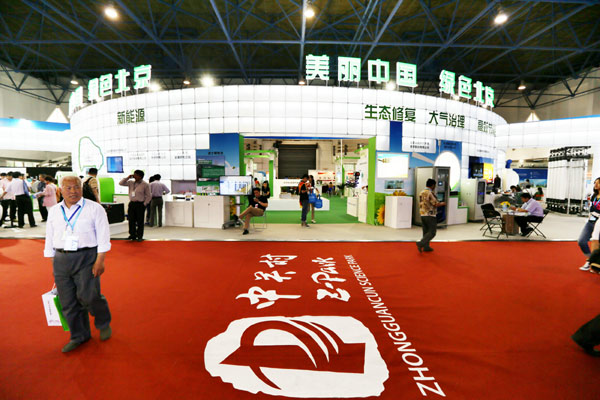Innovation-powered growth is essential if China is to avoid being left behind in the technological revolution
At a group study session of the central leadership in September, Party leader Xi Jinping stressed that the implementation of the strategy of innovation-driven development will decide the future of the Chinese nation. He urged the Party and society to grasp the trend of global science and technological innovation and seize the opportunities offered by the technological revolution and implement innovation-driven development as a key strategy for the future.

Zhongguancun National Innovation Demonstration Zone's exhibit at a science and technology trade show in Beijing in May. In the first five months of this year, the number of patents filed by the city's inventors increased 21.4 percent. Provided to China Daily
Indeed, China has come to a stage of development that commands innovation-powered growth. The more developed an economy becomes, the bigger the contribution knowledge and technology make to its growth. Thanks to the 30-plus years of reform and opening-up, China's GDP per capita, once ranked low worldwide, rose to about $6,100 in 2012, signifying it is time to make the transition from capital and resources-driven growth to innovation-motivated growth.
China has advantages in science and technology innovation, including a huge talent pool. Over the years, secondary school students from China have performed impressively in global mathematics, physics and chemistry competitions and every year about 2 million students majoring in engineering graduate from college. Meanwhile, the number of those who study abroad and return to China is on the rise, so is the number of scientists and technicians. The value of human capital nationwide is estimated to be between 200 to 300 trillion yuan ($33-48 trillion).
Moreover, China has raised its research and development input substantially. It now accounts for about 2 percent of the country's GDP and 14 percent of the world's total R&D input. The country's research equipment is also a far cry from that of the old days. Today, China boasts an ever-improving innovation system featuring distinct R&D capabilities that combine universities, corporate R&D centers, research institutes and key laboratories at State, provincial and city levels. China is also taking the lead in a wide range of scientific and technological areas, including rice hybrids, intelligent robots and cloud computing. With the aforementioned advantages, China should be full of confidence in implementing the strategy of innovation-driven development.